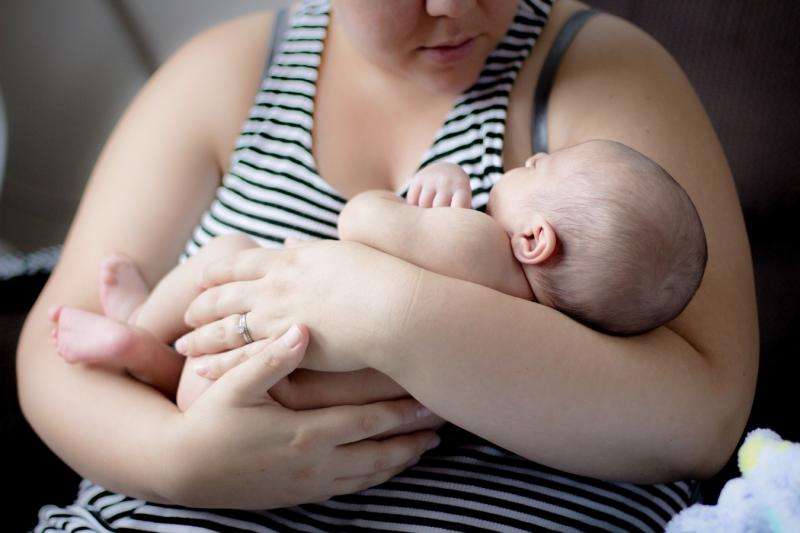Women in preterm labour to be offered antibiotics to combat Group B Strep

Women who go into labour before 37 weeks of pregnancy should be offered antibiotics to prevent a possible transmission of Group B Streptococcal (GBS), according to updated guidance published by the Royal College of Obstetricians and Gynaecologists (RCOG).
The Green-top Guideline, co-authored by Professor Peter Brocklehurst at the University of Birmingham, provides guidance for obstetricians, midwives and neonatologists on the prevention of early-onset neonatal GBS.
The guidance also calls for all pregnant women to be provided with appropriate information about GBS to support decision making and to raise awareness of the signs and symptoms of the infection in babies.
GBS is the most frequent cause of severe early onset (less than 7 days of age) infection in newborn babies. It is a bacteria that occurs naturally in the digestive system and lower vaginal tract of around a quarter of women at any one time and normally causes no harm. For pregnant women who carry GBS, the bacteria can be passed onto their baby during labour. The vast majority will suffer no ill effects but a small proportion of these babies will develop an infection and can become seriously ill.
Incidence of early onset GBS appears to be rising in the UK and around 500 babies developed the condition in 2015. With prompt treatment, seventeen out of 20 diagnosed babies will fully recover, however, two in 20 babies with GBS infection will recover with some level of disability, and one in 20 infected babies will die.
Women are at higher risk of passing GBS onto their baby if they go into preterm labour with nearly a quarter of all cases of early onset GBS in 2015 (22%) in babies born prematurely.
Compared to a risk of one in 2,000 for babies born at term, approximately one in 500 preterm babies will develop EOGBS disease. The mortality rate from infection increases from 2-3% for at term babies to 20-30% for those born before 37 weeks.
For this reason, the RCOG guideline recommends all women who go into preterm labour, regardless of whether their waters have broken, receive intravenous antibiotics during labour to prevent onset of the GBS infection.
Other risk factors for EOGBS include having a previous baby affected by GBS, a positive test for GBS discovered during pregnancy, prolonged rupture of membranes and a temperature of more than 38 degrees during labour.
The guidance also advises that women who were known carriers of GBS in a previous pregnancy can be offered a test at 35-37 weeks of pregnancy to see whether they are still a carrier, in order to reassess whether they still require antibiotics during labour.
The guideline does not recommend universal bacteriological screening for GBS, in line with recommendations made by the National Screening Committee. It found that there is no clear evidence to show that routine testing would do more good than harm.
Professor Peter Brocklehurst, Professor of Women's Health at the University of Birmingham and a co-author of the guideline, said: "This guidance provides clear advice to doctors and midwives on which women should be offered antibiotics to avoid passing GBS infection onto their babies. In particular we hope to reduce the number of early onset Group B Strep infections and neonatal deaths in babies born before 37 weeks.
"The management of women whose babies are at raised risk of developing Group B Strep infection remains a vital part of reducing illness and deaths caused by this infection. Ensuring a consistent approach to care in all maternity units is vital to achieving the best outcomes for both mother and baby."
Parents and carers should seek urgent medical advice if they are concerned that the baby:
- is showing abnormal behaviour (for example, inconsolable crying or listlessness)
- is unusually floppy
- has developed difficulties with feeding or with tolerating feeds
- has an abnormal temperature unexplained by environmental factors (lower than 36°C or higher than 38°C)
- has rapid breathing
- has a change in skin colour.
More information: Prevention of early-onset neonatal group B streptococcal disease. Green-top Guideline No. 36. BJOG 2017; DOI: 10.1111/1471-0528.14821



















